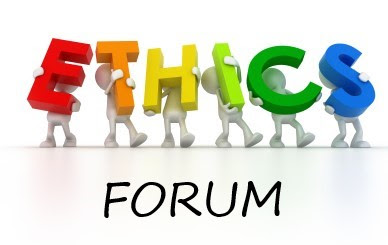Stalin, Truman, and Churchill before sessions of their meeting in Berlin in July 1945.
Photograph: Bettmann Archive
Churchill's perceptions of Joseph Stalin, Adolf Hitler, Franklin Roosevelt, Harry Truman, and even Mahatma Ghandi tell the story of good guys and bad guys. Churchill was the sort who assesses a person's character based on actions, and doesn't change his mind.
He considered Roosevelt a strong leader. After meeting with Roosevelt in Washington in January 1942, Churchill reported to the War Cabinet how "the last thing the President said when he came to see me off was 'To the bitter end, trust me.' We are suffering heavy blows but the United States is setting about the war with great vigour. They have jumped right into it. There is a sense of resolve to fight it on. They have tactical ideas of war, Hitler is the enemy, they will do what can re: Japan, but nothing will get in the way of defeating Hitler."
Many of Churchill's thoughts and actions were recorded by a young secretary to the deputy secretary to the War Cabinet which met in Whitehall between 1939 and 1945. Lawrence Burgis was to have destroyed his notes, but historians are glad that he secretly kept them.
Winston Churchill told the War Cabinet on 10 December 1941 that it faced an entirely new situation due to the surprise attack on Pearl Harbor. He believed in the possibility of Japanese control of the vast areas between Cape Town in South Africa and Vancouver in Canada.
Burgis recorded Churchill's confrontation with Field Marshal Jan Christian Smuts over his handling of Ghandi, saying, ‘You are responsible for all our troubles in India – you had Gandhi for years and did not do away with him.’ Smuts replied: ‘When I put him in prison – three times – all Gandhi did was to make me a pair of bedroom slippers.’
When Ghandi went on hunger strike during the war, Churchill told the Cabinet: "Gandhi should not be released on the account of a mere threat of fasting. We should be rid of a bad man and an enemy of the Empire if he died."
Sir Edward Grigg, the joint parliamentary Under-Secretary of State for War, reported that Gandhi was getting glucose in his orange juice, and another cabinet minister said ‘he had oil rubbed into him which was nutritious." Churchill, who considered Ghandi "a bad man," responded "it is apparently not a fast merely a change of diet."
Presentation of the Sword of Stalingrad on 29 November 1943.
Churchill's initial impression of Joseph Stalin was that he was "jocular" and predisposed to work toward some good, especially in Poland. He welcomed Soviet help in the war against Nazi Germany, but he recognized that the marriage of convenience could not hide the differences between the capitalism and communism.
At the 1943 Tehran conference, Churchill presented Stalin with the ceremonial Sword of Stalingrad, specially forged and inscribed by command of King George VI as a token of homage from the British people to the Soviet defenders of the city during the Battle of Stalingrad.
Churchill's attitude toward Stalin changed after the Potsdam Summit. He felt that Stalin asked too much.
During his second premiership, Churchill opposed the United States' nuclear approach to the Cold war and said, "I do not believe that the immense problem of reconciling the security of Russia with the freedom and safety of Western Europe is insoluble..." Of the U.S. policy Churchill remarked, "If you go on with this nuclear arms race, all you are going to do is make the rubble bounce."
In Great Britain Churchill became increasingly outspoken in his opposition to socialism. In a speech delivered in Perth, Scotland on 24 May 1948, he said, “Socialism is the philosophy of failure, the creed of ignorance, and the gospel of envy.” (Europe Unite: Speeches 1947; 1948, London: Cassell, 1950, p.347.)







